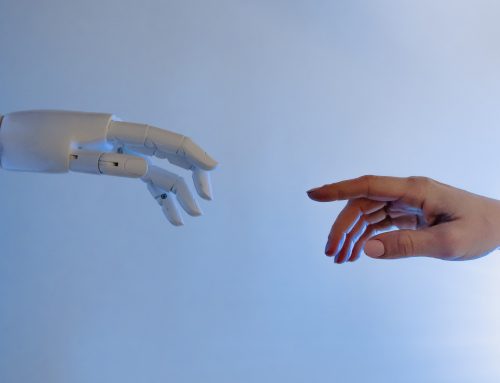Digital transformation has become such a buzzword in local government over the last decade or so that it’s in danger of losing any real meaning. Almost every local government organisation has some kind of ‘digital transformation’ project on the go now, but how many know what digital transformation actually looks like?
Is it digital transformation or just process improvement?
The label of ‘digital transformation’ is often slapped onto any project that involves any kind of IT upgrade, or system development. Many of these kinds of projects actually fall into the category of process improvement, but is process improvement the same thing as transformation? True digital transformation is hard to achieve and the road to it is paved with missed deadlines, aborted plans and unmet targets.
It’s easy to think of digital technology as merely an enabler for process improvements. It lets us do the same things that we’ve always done, but now we can do them faster or more efficiently or through a different channel. That’s fine as far as it goes – there’s obviously a significant amount of value in being able to manage your core processes more efficiently or effectively. But it’s not transformational.
True transformation changes the way you do things completely
True transformation comes when organisations embrace the opportunities that digital technology provides for completely new ways of doing things. Transformation comes from looking at the opportunities that disruptive technologies such as artificial intelligence, machine learning, cloud computing or advanced analytics might offer to really change the way in which an organisation relates to its customers.
The commercial world is full of examples of how truly transformative business models have disrupted established markets. While hotel chains were patting themselves on the back for installing online booking systems, along came Airbnb and a series of other peer-to-peer accommodation providers, completely transforming the whole accommodation market in a way that hotels had not anticipated. The same thing has happened in the taxi industry. Traditional cab firms were just getting to grips with offering credit card payment in their cars as Uber arrived on the scene, completely changing the way in which people arrange and pay for taxi travel.
True transformation is hard to achieve
So why is true transformation so hard to achieve? The problem often starts with the top leadership team who often see digital technology as a new way to do the same things. It takes real vision to be able to see the opportunities that technology can present to an organisation, and that vision needs to come from people at the top of the organisation who really understand and embrace all that technology has to offer. Otherwise what you end up with is a continuous improvement project rather than a transformation project.
Thus far, a lot of local government transformation has been more focused on the process improvement end of the transformation scale. Moving from paper forms to online forms is an example of this, along with digitising previously manual processes, or shifting offline communications to online. However, we’re starting to see more transformative projects that really change the ways in which people are working and citizens are interacting with local government.
How local government is achieving real transformation
Mobile working, for example, can transform the way your staff interact with your organisation and with your citizens. Social media, used as a two-way communication tool rather than simply a broadcast medium, can transform the relationships between citizens and local government into something much more collaborative than is generally the case.
We’re also starting to see local government organisations exploring the possibilities offered by technologies such as artificial intelligence, machine learning and the internet of things to radically transform the way in which they offer their services. For example, Hampshire County Council has begun deploying Amazon Echos in the homes of some social care recipients, giving them voice control of lights, televisions and other devices as well as voice activated access to information about things such as bus times, all of which offers the possibility of more independent living. The Greater London Authority used a Facebook chatbot to answer incoming questions about its New Year’s Eve fireworks display. Housing associations are using advanced predictive analytics to better match tenants to accommodation and to predict in advance which properties in their portfolio are likely to next need maintenance so they can move from being reactive to being proactive.
It will be fascinating to see how local government digital transformation embraces these new technologies and develops in the future.






